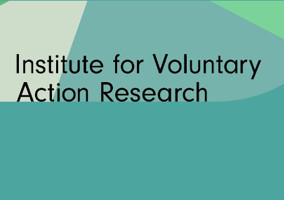The Charities SORP Committee has issued guidance to supplement the SORP on the single issue of the Covid19 pandemic. It is advisory guidance only, not mandatory, but it is undeniably helpful. It is relevant for those currently finalising their statutory financial statements as well as those planning for the year-end process. The guidance is helpful for both preparers of financial statements and those that scrutinise them, whether auditors or independent examiners.
The guidance indicates that consideration should include the virus’ effect on charities’ financial reporting in their statutory financial statements and any impact on financial sustainability. The effect on each individual charity may be widely different. As a result, there cannot be a standard approach, and each charity will need to assess their own particular circumstances and reflect this in their financial statements.
Contents of the guidance
There are five main areas to consider:
Trustees’ annual report (TAR)
It is likely that some reference to Covid-19 will be needed in every charity’s TAR. The guidance helpfully cross-references to module 1 of the SORP, so the Covid-19 guidance can be considered alongside the normal content of an annual report. Narrative is likely to cover:
- Impact on the current and future activities and operation of the charity.
- Implication for the charity’s finances and fundraising.
- Effect on financial sustainability and going concern, including any material uncertainties that have now arisen.
- Consideration of the charity’s reserves, their nature and adequacy, including the possible need to designate funds for future Covid-19 responses. It may be helpful to also consider the Charity Commission’s coronavirus guidance for the charity sector.
- How future aims and activities may be affected.
Accounting policies
There is a possibility that Covid-19 could affect the accounting policies that underlie the financial statements. Things to consider include:
- Effect on key judgments and estimates, such as income recognition and asset or liability valuations.
- Consideration of the going concern basis of preparation of the financial statements – use normal considerations hence existing Financial Reporting Council guidance is applicable and could be helpful.
- Assessment of possible material uncertainties and adequacy of disclosures concerning these circumstances. Or where the conclusion is that the charity is not a going concern, usual consideration of the break-up basis approach.
Accounting considerations
The potential impact of Covid-19 is pervasive to all aspects of financial reporting – income, expenditure, assets, liabilities and funds. Hence no area should be ignored when assessing accounting considerations. For example, at present charities may be at differing stages of their reporting cycle. For those with year ends that have yet to finalise their financial statements, this is quite likely to be a non-adjusting post-balance sheet event, that is most likely to affect disclosures. Whereas charities with a year-end of 31 March 2020 will probably need to treat this as a condition that existed at their yearend, with consequent considerations on reported results and the charity’s financial position.
The impact on defined benefit pensions schemes could be significant – both valuation of assets and liabilities as well as implication for future funding and hence contribution levels.
Many charities will be considering statutory filing deadlines. Companies House has announced a three-month extension to accounts filing – but requires companies to apply for this. The Charity Commission has stated that it would be sympathetic and would consider filing extensions.
Audit and external scrutiny
The various accountancy bodies have issued guidance which considers the practical implications for undertaking audits and independent examinations in the current environment. This includes:
- Implications of undertaking scrutiny work in an environment of social distancing, and potential limitation in scope.
- Potential need for the audit opinion or independent examination report to make reference to the impact of Covid-19 – probably in the context of the going concern principle.
- The Financial Reporting Council has published guidance to auditors regarding how they respond to these challenges, and an individualised approach is recommended.
- Separate guidance for auditors and examiners on reporting on matters of material significance was reissued in April 2020 by the charity regulators to have regard to the pandemic, and specifically at times of national emergency.
Charity reporting to regulators
Charity Commission guidance regarding serious incident reporting (SIR) now indicates that charities may need to consider SIRs, but this is not obligatory and depends on trustee judgment. It is important that trustees fully document this process.
The pandemic has redefined uncertainty, yet consideration of future uncertainties is an inherent aspect of the preparation of financial statements. Accounting and disclosure that is as clear and transparent as possible in these circumstances must be encouraged.
Related articles












